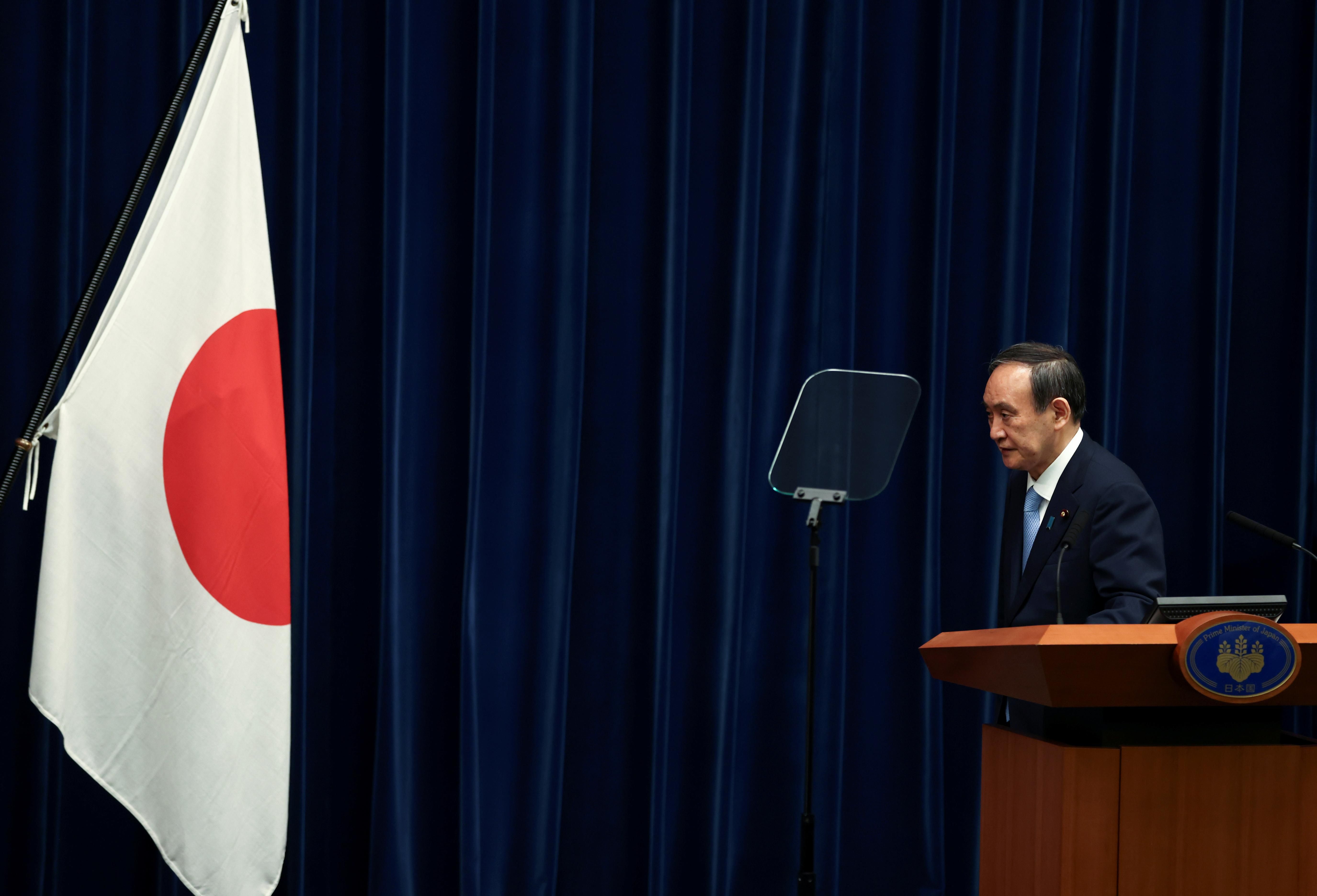When Shinzo Abe, Japan's longest-serving prime minister, stepped down last year citing health reasons, he passed the torch to his handpicked successor Yoshihide Suga.
Observers assumed that it would be mostly smooth sailing for the new PM, who had worked side-by-side with the popular Abe for decades.
But less than a year since taking office, Suga is now grappling with sky-high disapproval ratings and fighting for his political life. What's gone so wrong for Suga and what might this all mean for his political future?
COVID takes center stage. Few political leaders have emerged from the COVID crisis unscathed, but none, perhaps, have suffered as much as Suga, who is now recording a net approval rating of -35, way lower than the leaders of India and Brazil, where the pandemic has taken a far heavier toll.
Major Japanese cities are still under a "state of emergency" because new COVID strains have impeded efforts to contain the pandemic. Meanwhile, health systems in major cities like Osaka are still overwhelmed. That doesn't bode well for Suga, who was elected in September to replace Abe as head of the ruling Liberal Democratic Party.
For now, the Japanese population's ire is mostly directed at the government's bungled vaccine rollout, which many attribute to mismanagement by Suga and the LDP. To date, less than 10 percent of Japan's 126 million people have received at least one vaccine dose. That's particularly problematic in a country where 30 percent of the population are over 65, those most vulnerable to serious disease from COVID.
Critics say that Japan's government — feeling complacent with the country's relatively low caseload last year compared to other developed economies — was extremely slow to enter negotiations with pharmaceutical companies to secure vaccines. Moreover, the health ministry has also applied cumbersome red tape by requiring that all imports of vaccines undergo domestic clinical testing as well. While Japan's vaccine drive has picked up a little recently, it still lags way behind the US, UK, Canada, and the EU.
Political scandals. Abe's final months were spent trying to prevent a series of LDP scandals from tainting his political legacy. Suga, who one commentator described as an "Abe substitute," has indeed inherited that problem. A former LDP trade minister recently resigned from the Diet, Japan's legislature, over a gift and money scandal, while a former justice minister pleaded guilty to vote buying charges. Several other bribery and corruption scandals have also plagued LDP members, further undermining support for Suga's already-flailing government.
This contributed to the LDP losing three seats in by-elections in April, which all went to the Constitutional Democratic Party of Japan (CDP), the main opposition. Importantly, the loss of an upper-house seat representing Hiroshima, an LDP stronghold, was a major blow for Suga and a sign of the depths of dissatisfaction from a scandal-weary populace.
Olympic politics. Meanwhile, Suga still insists on holding the Tokyo Olympic Games next month, despite the fact that 80 percent of Japanese oppose it, fearing the Games will become a super-spreader event for new variants. This has also contributed to the hemorrhaging of Suga's support in recent months.
But when it comes to navigating the Tokyo Olympics saga, Suga is stuck between a rock and a hard place. The International Olympic Committee (IOC), which, along with other stake holders, stands to lose billions in revenue from another postponement as well as lack of foreign spectators, is not making Suga's life any easier. Contractual and legal obligations with the IOC and sponsors also make this complicated terrain for the Japanese government.
Suga, for his part, probably hopes that pulling off a successful Olympics will help prop up his popularity ahead of a leadership vote for LDP's presidency in September, as well as general elections, which have to take place by October 22. Analysts say that he wants the general to come first (which LDP will likely win) so that he boosts his chances of winning a three-year term as head of his party.
Looking ahead. The LDP has only lost power twice since 1955. Given the state of the weak and divided opposition, it's unlikely that Japan will see a massive government shakeup this fall, though the ruling party could lose its two-thirds majority in the lower house, which is needed to make sweeping legislative change.
Suga will now have the mammoth task of convincing both his own party and the Japanese people that they should give him another go. Can he pull it off?
